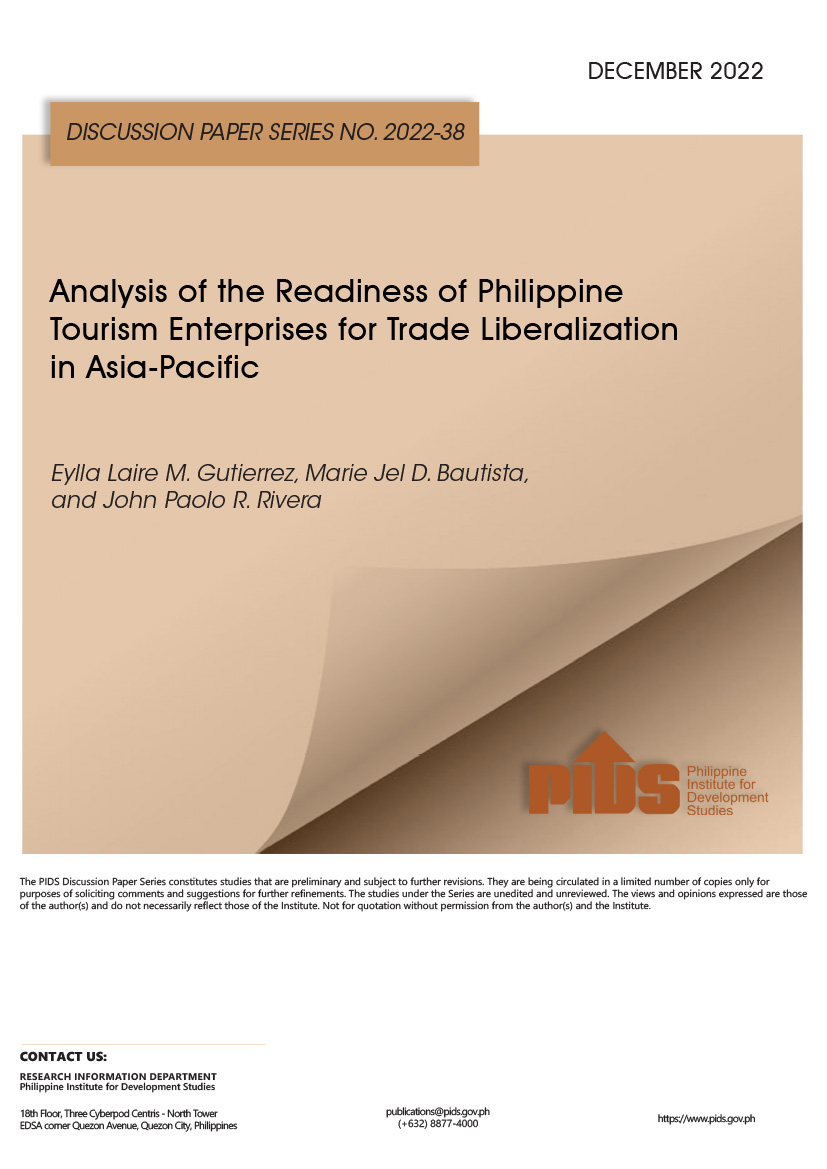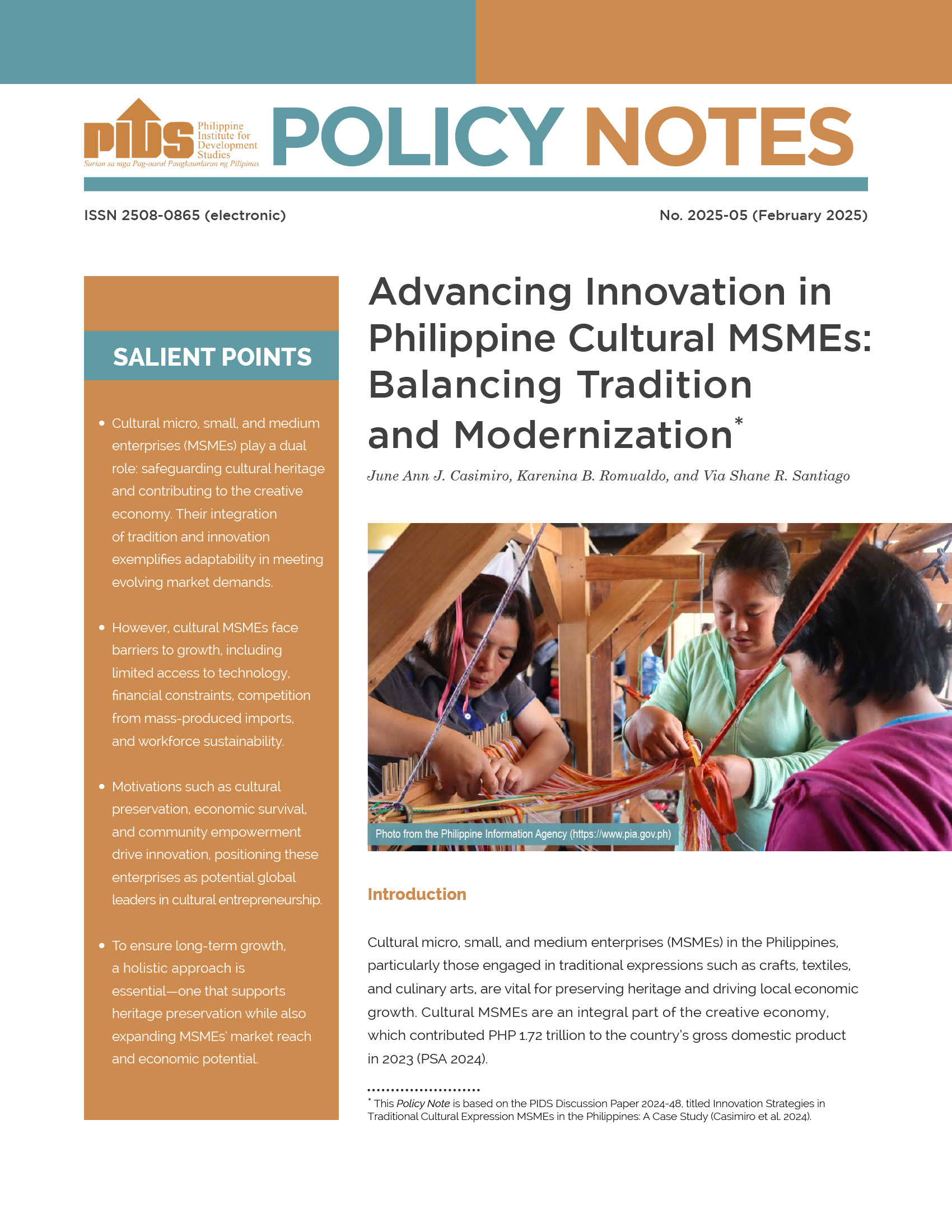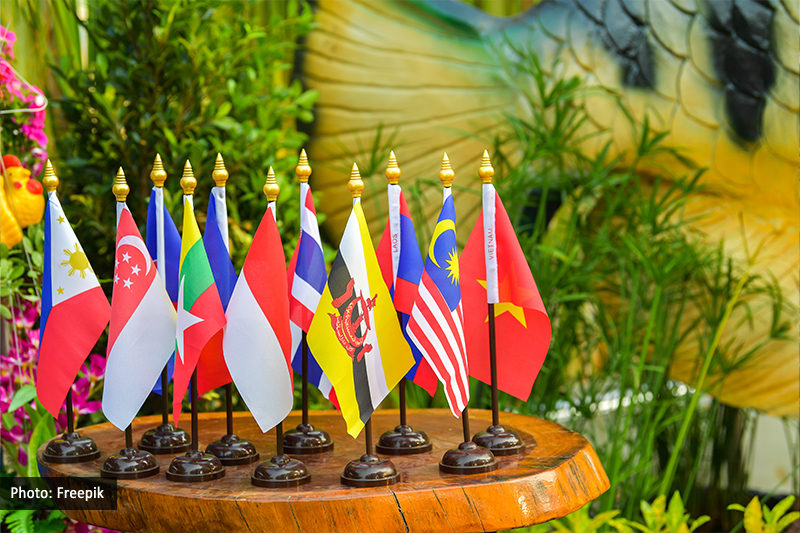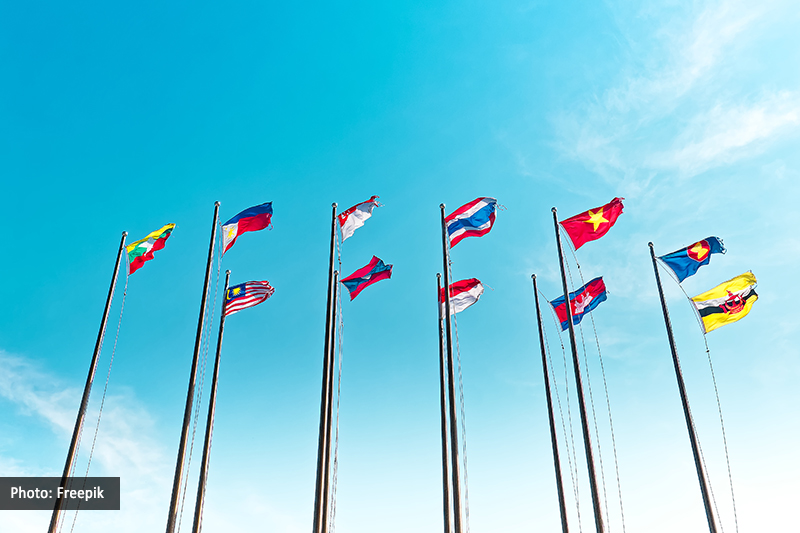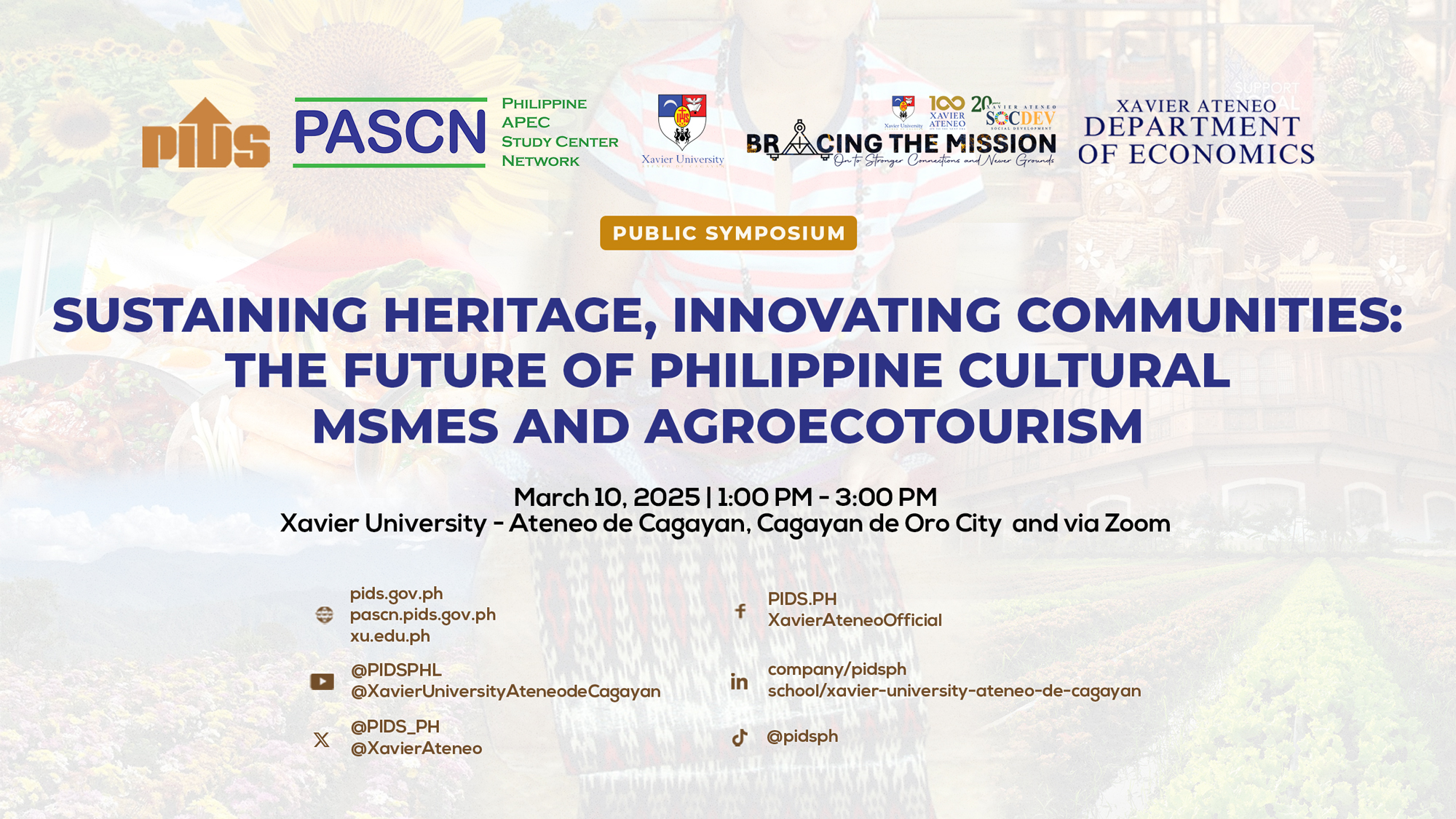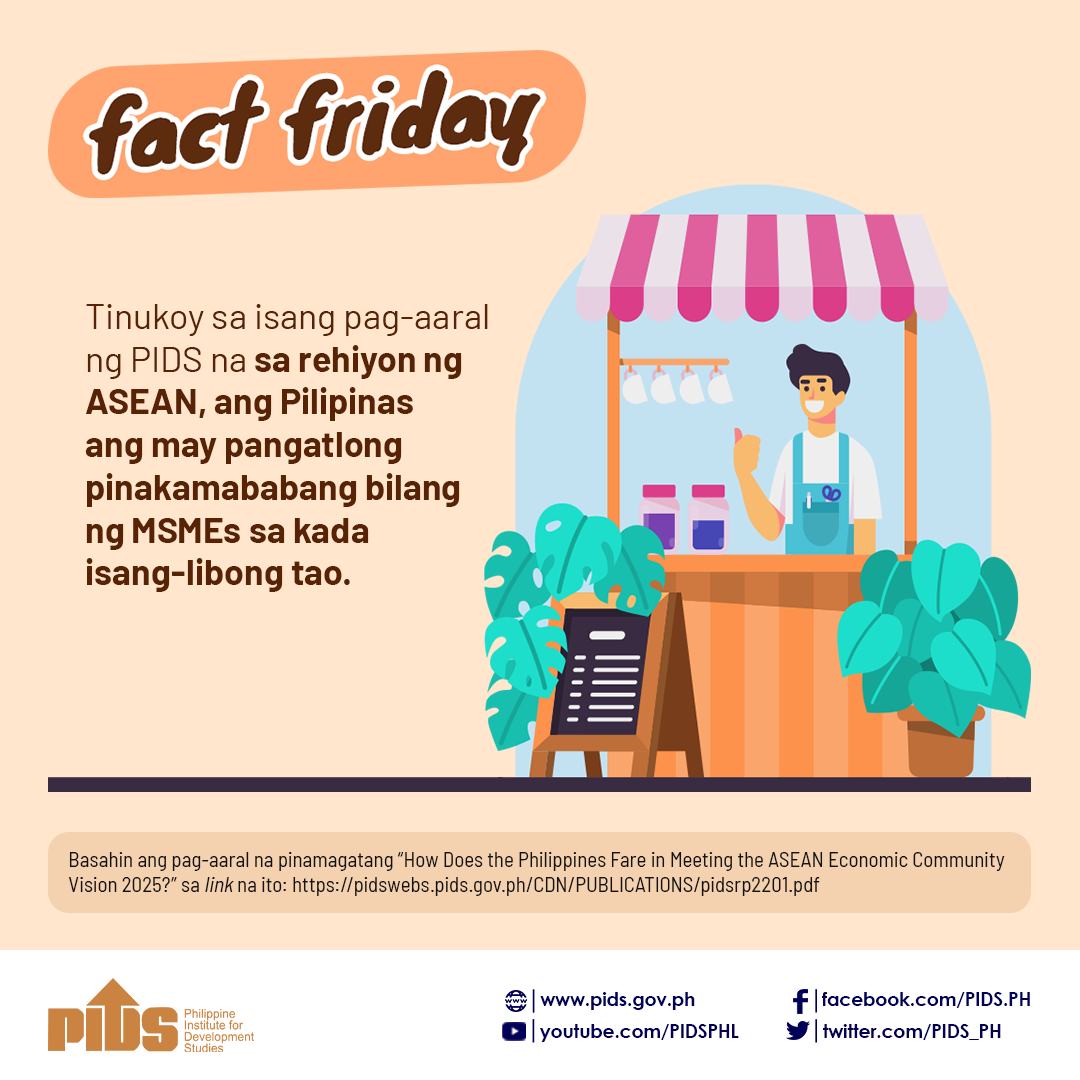Amid the signing of various trade agreements defining trade rules and commitments for economies globally, the Regional Comprehensive Economic Partnership (RCEP) and the Comprehensive and Progressive Agreement for Trans-Pacific Partnership (CPTPP) both emerged as the largest and latest of them. Dubbed as a comprehensive agreement involving 15 and 11 member economies, respectively, the combined impact of these trade agreements is expected to facilitate deepened integration of its members to the global economy, resulting in global economic growth and poverty alleviation. Similarly, such agreements may also present threats such as increased inequality and stiffer competition for local industries, among others. Given the opportunities and threats of these agreements to participating economies, examining the readiness of enterprises to liberalization remains a crucial subject for its member economies and prospective members, including the Philippines. We look at the tourism industry in the Philippines, given its significance as the country’s top economic pillar heavily affected by the coronavirus (COVID-19) pandemic. We explicate the continuously expanding role of the tourism industry in the economy, identify opportunities for and threats to the tourism industry, and assess the readiness of tourism enterprises to participate—by addressing the research problem: how can tourism enterprises prepare themselves for the impacts of trade liberalization brought about by RCEP and CPTPP? Using the triangulation method, specifically qualitative data gathering methods: document review, key informant interviews (KIIs), and focus group discussion (FGD), we construe that both agreements offer limited opportunities for tourism stakeholders to participate in liberalization activities, while tourism stakeholders remain challenged by issues pertaining to mutual recognition and standardization of skills and capacity development. Findings are useful to industry practitioners, government, and academicians understand where the tourism industry stands amid these local and international economic developments.
Comments to this paper are welcome within 60 days from the date of posting. Email publications@pids.gov.ph.

